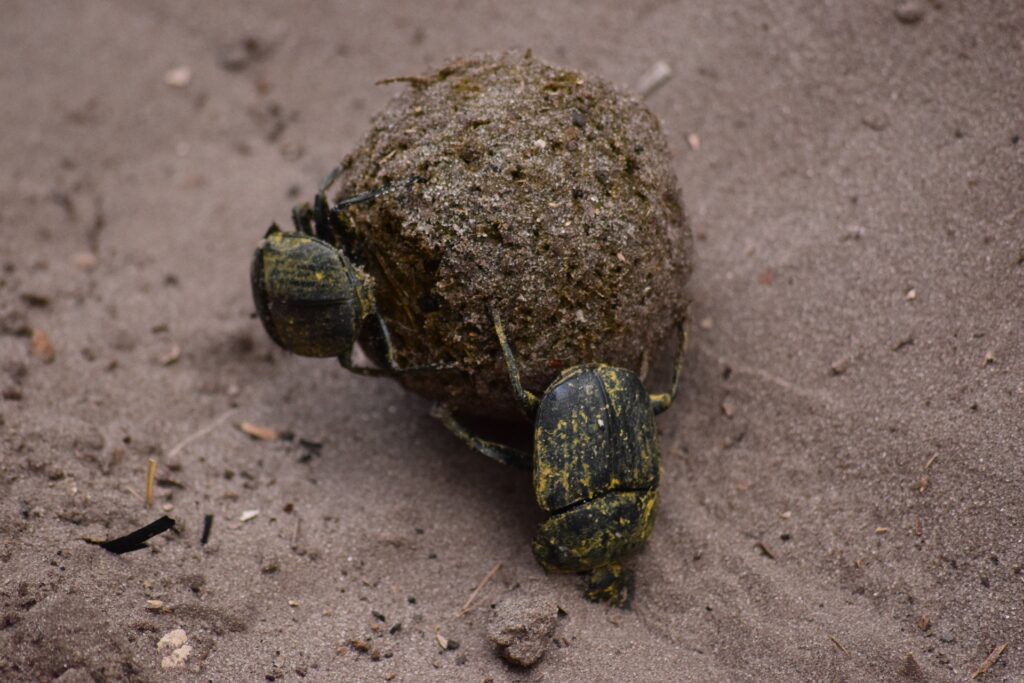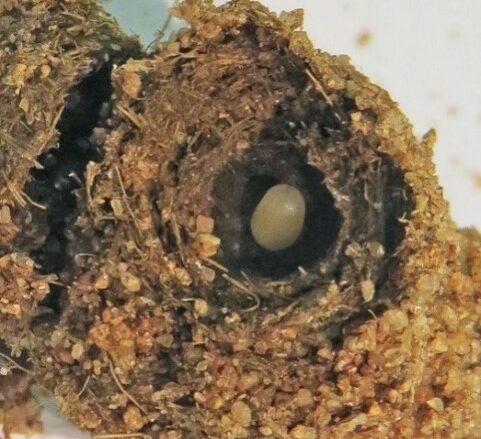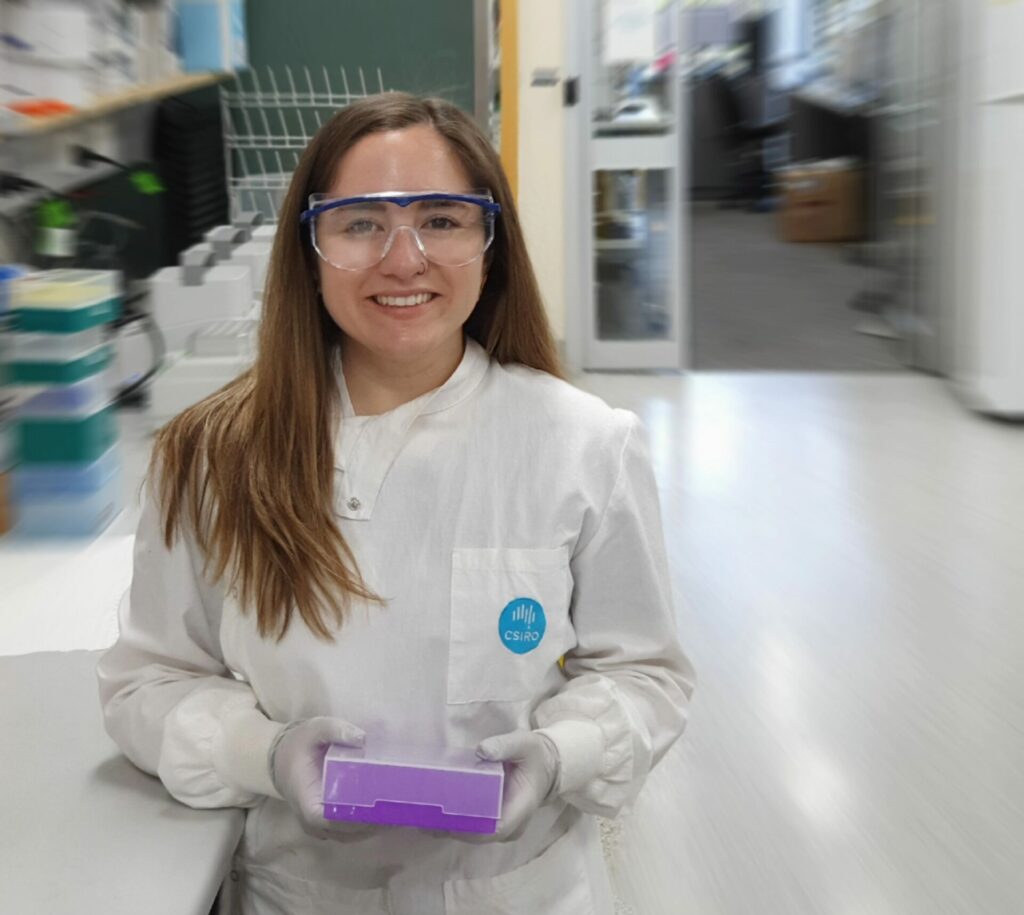Enhancing the dung beetle microbiome to reduce dung in cattle grazing pastures
Enhancing the dung beetle microbiome to allow them to develop into healthy, reproducing adult beetles so they can clear cattle grazing pastures of dung.
The challenge

Dung beetle rolling dung, an important ecological process. Credit – pixabay member BlueFarrar.
Introduced livestock now number more than 28 million cattle in Australia. The average cow drops between 10 and 12 dung pads every day resulting in a huge amount of dung produced annually. Build up of dung causes significant ecological and economic damage attracting flies which increase the spread of pests and disease, and nutrients flow into waterways reducing pasture soil quality and productivity. Just one large dung pad can produce up to 3000 bush flies (Musca vetustissima) in a fortnight, creating a major nuisance for people and domestic livestock. Our native dung beetles, adapted to make use of the fibrous pelleted dung from native mammals, are unable to cope with the large quantities of dung produced by introduced livestock, particularly cattle. CSIRO ran a program from 1969 to the mid-1990s to introduce dung beetles primarily from overseas to take care of the dung with great success. However, introduced European dung beetle species, such as Onthophagus vacca, used in temperate areas of Australia were far less successful at surviving here. The importation process requires beetles be placed in quarantine and the eggs surface-sterilised to remove harmful pathogens. However, this process also removes the insect’s natural microbiome, which has been shown to impact the fitness and survivability of this and other species. Adult beetles have had limited success establishing in the new environment, and the establishment of an appropriate microbiome may be a major contributing factor.
Our response

MOSH scientists will add a species-specific microbiome to sterilised imported dung beetle egg.
To help the establishment and survival of the temperate species of dung beetle, researchers will aim to restore the microbiome of sterilised eggs outside of quarantine. First, they will use multi-omics analysis of experimentally manipulated dung beetles to understand how individual microbes play an important functional role for the host beetle. This knowledge will be used to guide the design of species-specific functional microbiomes that can be delivered by inoculating the sterilised eggs while in the brood ball which will lead to beneficial development outcomes. The added microbiome will allow the dung beetle to develop into healthy, reproducing adult beetles that are able to tolerate the Australian environment so they can get to work cleaning cattle grazing pastures.
The Team
Sophia Escobar Correas Postdoctoral fellow
Dr Matthew Morgan Team leader
Dr Amy Paten Research scientist
Dr Valerie Caron Team Leader
Patrick Gleeson Research technician
Saleta Perez Vila Research technician/Quarantine manager

Sophia Escobar Correas in the lab performing multi-omic analyses to understand the insect gut microbiome.
More information
Dung beetles control buffalo and bush flies. – CSIRO
